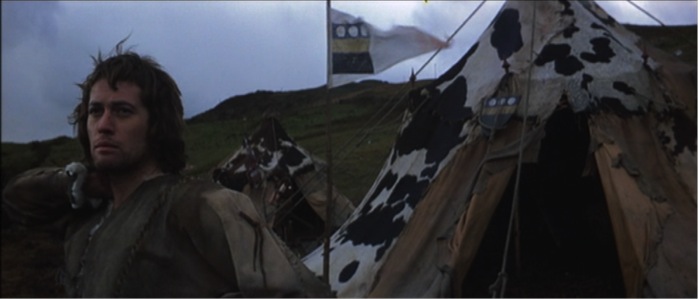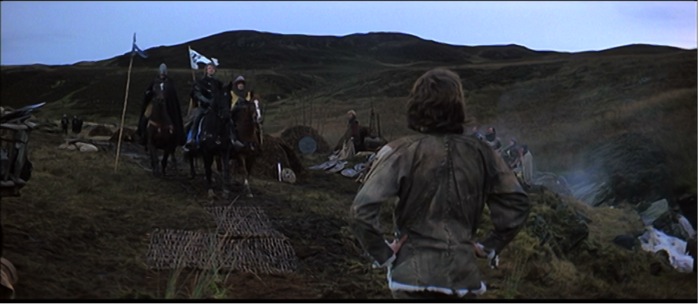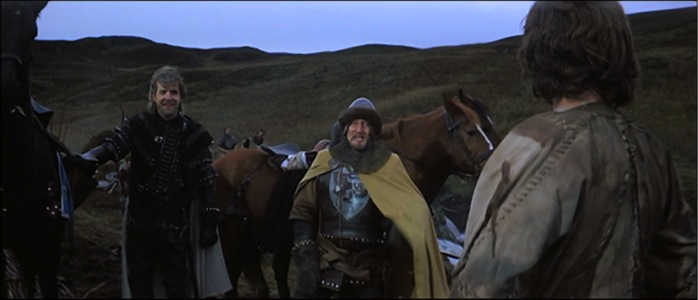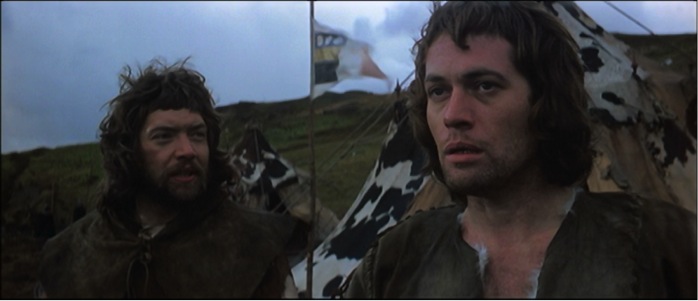Shot on location in the gritty and windswept landscapes of North Wales and Northumbria, Macbeth contains a masterly but understated demonstration of the film-maker’s art. At this transformative moment, ambition takes root in the heart of the eponymous antihero as Polanski transmutes an already famous Shakespearian scene into a piece of compelling visual drama.
It is the morning after the victorious warrior Macbeth’s encounter with a group of witches who have predicted that he will be made Thane of Cawdor before becoming King. Dismissing this ‘strange intelligence’ as fantasy, Macbeth (Jon Finch) and his companion Banquo (Martin Shaw) have rested for the night.
We find them in a small military encampment where the mysteries of the night before have given way to a dreary and cinereal dawn. Macbeth emerges from his tent as if from a dream and spits on the ground; he makes a movement equatable with zipping his flies and stretches. The naturalism of the visual language defuses the tension created by the supernatural events on the ‘blasted heath’ and, for a few moments, ordinariness prevails.
Hoof-beats are heard and Macbeth’s attention is drawn to them. The camera pans around to chart the slow approach of four horsemen – Ross (John Stride), Angus (Bernard Archard) and two soldiers – bearing ensigns from King Duncan (Nicholas Selby). Macbeth watches with interest and turns to face the visitors.
They dismount, and with a sense of cheerful alacrity deliver the hammerblow: “The King hath happily received, Macbeth, the news of thy success,” says Ross. “He bade me from him call thee Thane of Cawdor” says Angus. A timely cut to Macbeth’s face allows us to see the news hit home. Banquo, who has wandered into the scene and stands aghast with Macbeth, realises the implications of the news: “What,” he says grimly, “can the devil speak true?”
In Shakespeare’s play, these events occur within a few lines directly after the witches’ revelations. By extending temporal space and altering place, Polanski tells us that it is not the witches’ prophesy but its ratification which constitutes the pivotal moment in this darkest of Shakespearean tragedies. In his masterful interpretation it is in Macbeth’s astounded expression on hearing the fateful news: that the germ of ambition sprouts into the hell of possibility.





